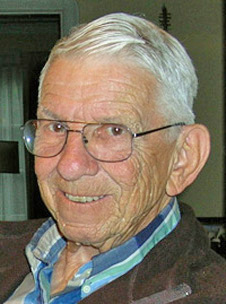Related Research Articles

The Southern United States, also referred to as the Southern States, American South or simply the South, is a geographic and cultural region of the United States. It is between the Atlantic Ocean and the Western United States, with the Midwestern United States and Northeastern United States to its north and the Gulf of Mexico and Mexico to its south. It also has major portions that are part of the Eastern United States.
The Southern Agrarians were twelve American Southerners who wrote an agrarian literary manifesto in 1930. They and their essay collection, I’ll Take My Stand: The South and the Agrarian Tradition, contributed to the Southern Renaissance, the reinvigoration of Southern literature in the 1920s and 1930s. They were based at Vanderbilt University in Nashville. John Crowe Ransom was their unofficial leader, though Robert Penn Warren became their most prominent member. The membership overlaps with The Fugitives.

Comer Vann Woodward was a Pulitzer-prize winning American historian focusing primarily on the American South and race relations. He was long a supporter of the approach of Charles A. Beard, stressing the influence of unseen economic motivations in politics. Stylistically, he was a master of irony and counterpoint. Woodward was on the left end of the history profession in the 1930s. By the 1950s he was a leading liberal and supporter of civil rights. His demonstration that racial segregation was a late-19th-century invention rather than some sort of eternal standard made his The Strange Career of Jim Crow into "the historical Bible of the civil rights movement", said Martin Luther King Jr. After attacks on him by the New Left in the late 1960s, he moved to the right politically.

In the history of the United States, carpetbagger is a largely historical term used by Southerners to describe opportunistic Northerners who came to the Southern states after the American Civil War, who were perceived to be exploiting the local populace for their own financial, political, and/or social gain. The term broadly included both individuals who sought to promote Republican politics, and individuals who saw business and political opportunities because of the chaotic state of the local economies following the war. In practice, the term carpetbagger was often applied to any Northerner who was present in the South during the Reconstruction Era (1865–1877). The term is closely associated with "scalawag", a similarly pejorative word used to describe native White Southerners who supported the Republican Party-led Reconstruction.
Neo-Confederates are groups and individuals who portray the Confederate States of America and its actions during the American Civil War in a positive light. Some neo-Confederate organizations such as the League of the South continue to advocate the secession of the former Confederate States.
In United States history, the Redeemers were a political coalition in the Southern United States during the Reconstruction Era that followed the Civil War. Redeemers were the Southern wing of the Democratic Party. They sought to regain their political power and enforce white supremacy. Their policy of Redemption was intended to oust the Radical Republicans, a coalition of freedmen, "carpetbaggers", and "scalawags". They generally were led by the white yeomanry and they dominated Southern politics in most areas from the 1870s to 1910.
Ulrich Bonnell Phillips was an American historian who largely defined the field of the social and economic history of the antebellum American South and slavery. Phillips concentrated on the large plantations that dominated the Southern economy, and he did not investigate the numerous small farmers who held few slaves. He concluded that plantation slavery produced great wealth, but was a dead end, economically, that left the South bypassed by the industrial revolution underway in the North.
Steven Howard Hahn is Professor of History at New York University.

Howard Washington Odum was a white American sociologist and author who researched African-American life and folklore throughout his career. Beginning in 1920, he served as a faculty member at the University of North Carolina, founding the university press, the journal Social Forces, and what is now the Howard W. Odum Institute for Research in Social Science, all in the 1920s. He also founded the university's School of Public Welfare, one of the first in the Southeast. With doctorates in psychology and sociology, he wrote extensively across academic disciplines, influencing several fields and publishing three novels in addition to 20 scholarly texts.
Jonathan Worth Daniels was an American author, editor, and White House Press Secretary. He was a founding member of the Peabody Awards Board of Jurors, serving from 1940 until 1950. For most of his life, he worked at The News & Observer, and later founded The Island Packet.
Robert C. "Bob" McMath Jr. is a historian and former Dean of the Honors College of the University of Arkansas. He received his PhD from the University of North Carolina at Chapel Hill in 1972. From then until his appointment at the University of Arkansas in 2005, he taught history and held a series of administrative posts at Georgia Tech, except for 1996 when he was a Fulbright Lecturer in Italy. In August 2014, he retired from the University of Arkansas and is now Professor Emeritus of History and Dean Emeritus.
Don Higginbotham was an American historian and Dowd Professor of History and Peace, War, and Defense at the University of North Carolina at Chapel Hill. A leading scholar of George Washington, he was a pioneering practitioner of the “new” military history and an expert on colonial and revolutionary America and the early national United States. He served twice as visiting professor of history at the United States Military Academy.
Bertram Wyatt-Brown was a noted historian of the Southern United States. He was the Richard J. Milbauer Professor Emeritus at the University of Florida, where he taught from 1983-2004; he also taught at Case Western University for nearly two decades. He studied the role of honor in southern society, in all classes, and wrote a family study of the Percy Family, including its twentieth-century authors William Alexander Percy and Walker Percy.
Dan T. Carter is an American historian.

Charles Grier Sellers Jr. was an American historian. Sellers was best known for his book The Market Revolution: Jacksonian America, 1815–1846, which offered a new interpretation of the economic, social, and political events taking place during the United States' Market Revolution.
Jacquelyn Dowd Hall is an American historian and Julia Cherry Spruill Professor Emerita at the University of North Carolina at Chapel Hill. Her scholarship and teaching forwarded the emergence of U.S. women's history in the 1960s and 1970s, helped to inspire new research on Southern labor history and the long civil rights movement, and encouraged the use of oral history sources in historical research. She is the author of Revolt Against Chivalry: Jessie Daniel Ames and the Women’s Campaign Against Lynching;Like a Family: The Making of a Southern Cotton Mill World and Sisters and Rebels: The Struggle for the Soul of America.
Ward W. Briggs Jr. is an American classicist and historian of classical studies. He taught until 2011 as Carolina Distinguished Professor of Classics and Louise Fry Scudder Professor of Humanities at the University of South Carolina.

Louis Decimus Rubin Jr. was a noted American literary scholar and critic, writing teacher, publisher, and writer. He is credited with helping to establish Southern literature as a recognized area of study within the field of American literature, as well as serving as a teacher and mentor for writers at Hollins College and the University of North Carolina at Chapel Hill; and for founding Algonquin Books of Chapel Hill, a publishing company nationally recognized for fiction by Southern writers. He died in Pittsboro, North Carolina and is buried at the Kahal Kadosh Beth Elohim Cemetery in Charleston, South Carolina.
White Southerners, from the Southern United States, are considered an ethnic group by some historians, sociologists and journalists, although this categorization has proven controversial, and other academics have argued that Southern identity does not meet the criteria for definition as an ethnicity.

Gary William Gallagher is an American historian specializing in the history of the American Civil War. Gallagher is currently the John L. Nau III Professor in the History of the American Civil War at the University of Virginia. He produced a lecture series on the American Civil War for The Great Courses lecture series.
References
- ↑ Fox, Margalit (2006-12-08). "George Tindall, 85, Historian Who Charted the New South, Dies". The New York Times. ISSN 0362-4331 . Retrieved 2013-06-21.
- ↑ Carter, Dan T. (May 2007). "In Memoriam: George Brown Tindall". Perspectives Online. 45 (5). ISSN 1556-8563 . Retrieved 2013-06-21.